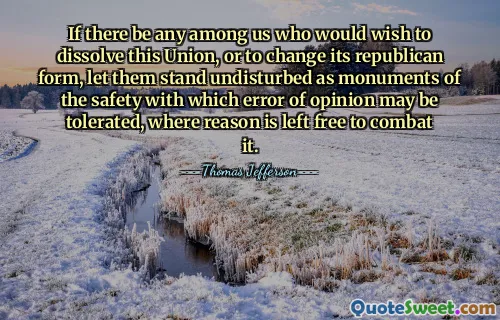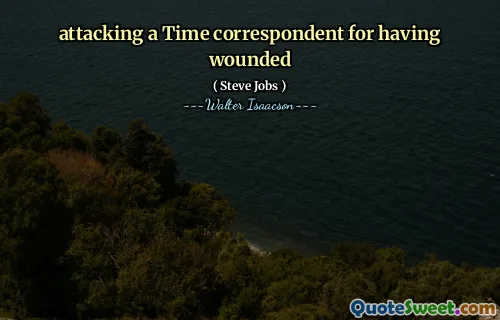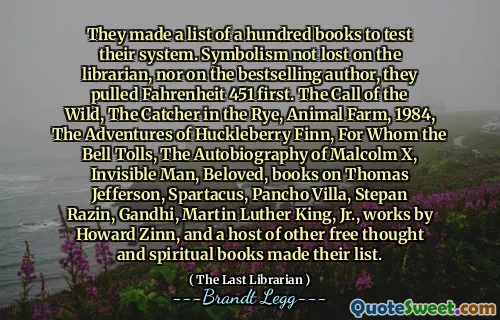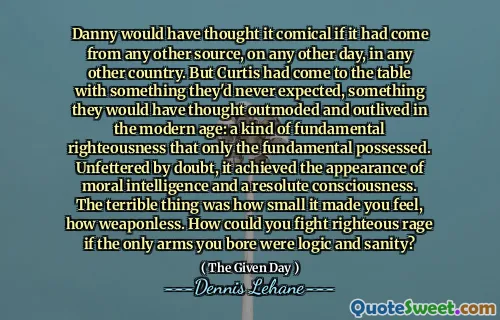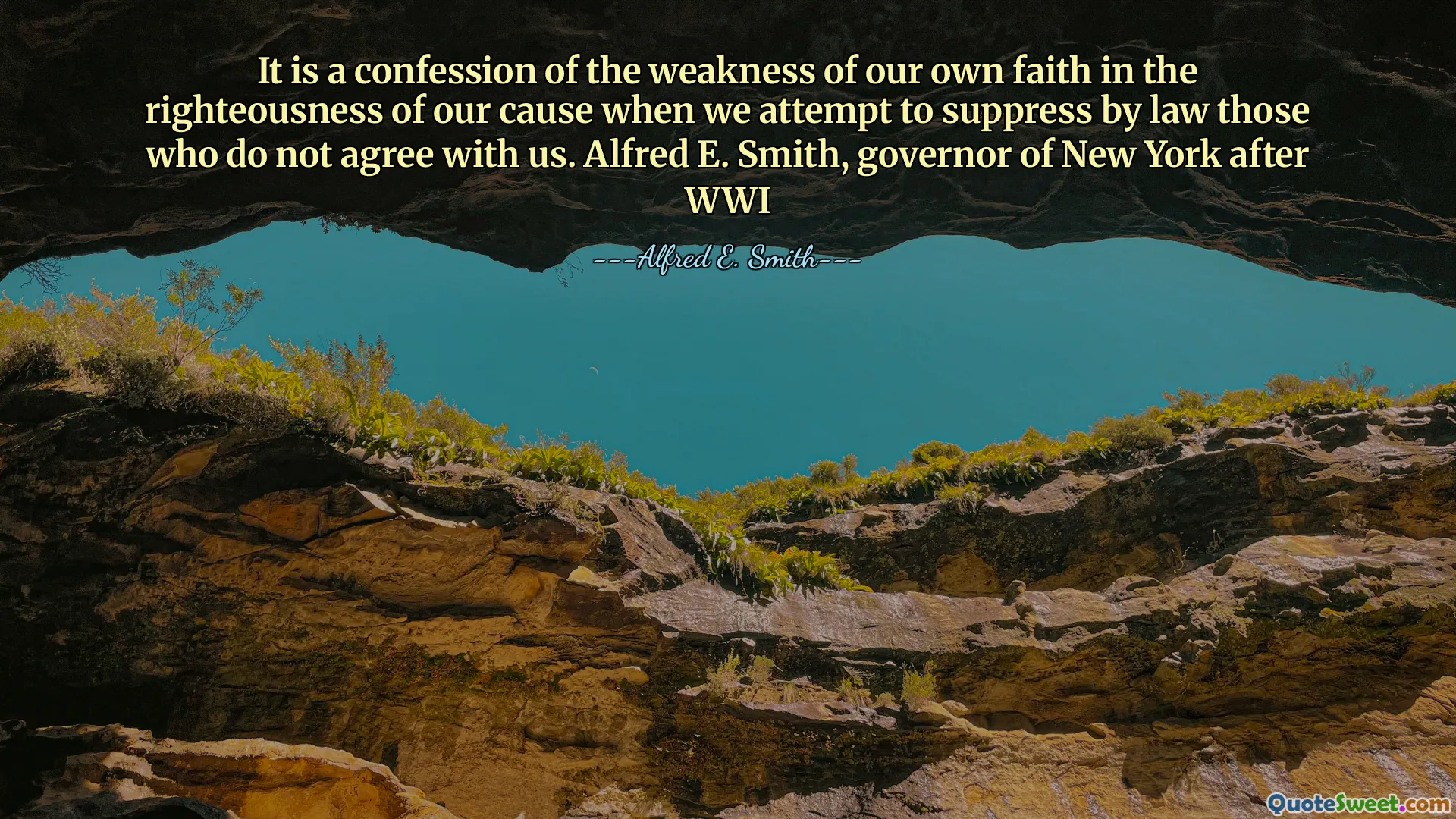
It is a confession of the weakness of our own faith in the righteousness of our cause when we attempt to suppress by law those who do not agree with us. Alfred E. Smith, governor of New York after WWI
This quote by Alfred E. Smith offers a profound reflection on the nature of confidence and conviction in one’s beliefs, especially within the political and social arenas. When individuals or groups feel compelled to use laws to silence dissenting voices, it speaks less to the legitimacy or strength of their cause and more to an underlying insecurity or lack of faith in what they represent. It is a powerful reminder that true conviction doesn’t need to resort to force or suppression; it stands on the strength of reason, evidence, and moral clarity.
In democratic societies, this quote taps into the essential principles of free speech and open discourse. The willingness to tolerate opposing viewpoints—even those that challenge or threaten one's position—is often a measure of the health and maturity of that society. When laws are invoked to suppress disagreement, it can lead to an erosion of these essential freedoms and eventually undermine the very cause proponents are trying to defend. Instead of fostering dialogue and building consensus, such suppression breeds division and mistrust.
Moreover, Smith’s words echo a timeless caution against authoritarian tendencies and the politicization of legal systems. It compels us to reflect critically on our methods for achieving social or political change—do we build shared understanding through debate and persuasion, or do we impose conformity through coercion? His insight encourages humility and vigilance, highlighting the importance of confidence grounded in justice and ethics, not in fear or dominance.
Ultimately, this quote invites ongoing reflection about how we engage with differing perspectives and the moral courage it takes to champion a cause through conviction rather than compulsion.
---Alfred E. Smith---






